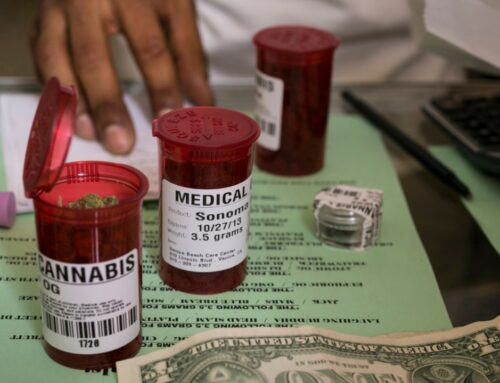Cannabis is worse for the heart than cocaine
June 18, 2025
Cannabis is everywhere now. It’s in pharmacies, parties, pain clinics, and political speeches. Many use it to sleep better, relax, or deal with pain. Some cannabis users even see it as a natural alternative to pills.
However, while the world embraced cannabis, heart doctors started noticing something else. A new study published in the journal Heart, based on data from over 432 million people, has revealed a clear connection.
People who use cannabis have a much higher risk of heart attacks, strokes, and even dying from heart disease. That’s not fear-mongering – it’s data from .
In over half of the states in the U.S., and in some countries in Europe, like France, doctors can give cannabis to patients as medicine, but using it just for fun is still illegal.
Even though it’s not allowed for fun, many young people in France still use it a lot. Germany recently changed its laws and now lets people use cannabis recreationally, starting in April 2024.
Now more people use cannabis, and the products they’re using are stronger than before. Today’s cannabis has more THC. That means stronger effects on the brain and body – especially the heart.
The researchers looked at 3,012 studies. Among them, 24 studies were focused on the link between cannabis and major heart problems.
An analysis of the research showed that people who use cannabis have a 29 percent higher risk of heart attack, a 20 percent higher risk of stroke, and more than double the risk of dying from heart disease.
Stroke risk didn’t look the same in every study. A few didn’t find strong links, especially in people who used cannabis once or twice. But when the researchers zoomed in on heavy users or younger adults, the risk became clearer.
In Australia, one study found that people who used cannabis weekly were nearly five times more likely to suffer a stroke or mini-stroke. A U.S. hospital database also found increased risk, especially in people aged 25 to 34.
These results suggest that occasional cannabis use may not be a red flag. But regular use, especially while young, is when things start looking risky.
One study showed that cannabis users aged 15 to 22 were 36 percent more likely to have a heart attack. Another found that people using cannabis more than once a week had more than double the odds.
That’s after adjusting for tobacco, cocaine, and other drugs. Cannabis came out as the strongest predictor in a French hospital study – even stronger than cocaine.
That’s not the story we usually hear about cannabis. But these numbers speak louder than opinions.
The risk of fatal cardiovascular events was also investigated. In one study, young patients who had heart attacks and also used cannabis were far more likely to die. The link remained consistent even after controlling for smoking and other conditions.
Another study conducted in the United States confirmed that cannabis users had a much higher chance of dying from heart-related causes.
In the UK, a 2024 study revealed an unexpected twist. Women, not men, faced higher risks of heart-related death from heavy cannabis use.
Cannabis has shown several proven medical benefits, especially when used under a doctor’s guidance. One of its most recognized uses is for managing chronic pain.
People with conditions like arthritis, multiple sclerosis, or nerve-related injuries often find relief through cannabis-based treatments.
The plant’s compounds – mainly THC and CBD – can interact with the body’s endocannabinoid system to reduce pain signals and inflammation.
Medical cannabis also helps cancer patients by easing nausea and vomiting caused by chemotherapy, and in some cases, it can stimulate appetite for those struggling with weight loss due to illness.
Doctors have also used cannabis to help patients with neurological disorders. In certain forms of epilepsy, especially in children, CBD-based medications have reduced the number and severity of seizures.
These examples reflect how cannabis, when used appropriately, can provide real and sometimes life-changing benefits for patients, making it easier for some to ignore the overall health implications attached to cannabis use.
“Cannabis needs to be incorporated into the framework for prevention of clinical cardiovascular disease. So too must cardiovascular disease prevention be incorporated into the regulation of cannabis markets,” noted Professor Stanton Glantz and Dr. Lynn Silver.
The experts emphasized that today’s cannabis is not what it used to be. It now includes potent concentrates, synthetic versions, and a growing variety of edible and inhalable forms. These may carry risks beyond the cannabinoids themselves.
“How these changes affect cardiovascular risk requires clarification, as does the proportion of risk attributable to cannabinoids themselves versus particulate matter, terpenes or other components of the exposure,” the authors noted.
“Specifically, cannabis should be treated like tobacco: not criminalized, but discouraged, with protection of bystanders from secondhand exposure.”
Doctors should ask about cannabis use, particularly when it comes to patients with heart problems. For people using cannabis regularly, it’s time to rethink the idea that it is harmless.
The study is published in the journal Heart.
—–
Like what you read? Subscribe to our newsletter for engaging articles, exclusive content, and the latest updates.
Check us out on EarthSnap, a free app brought to you by Eric Ralls and Earth.com.
—–
Search
RECENT PRESS RELEASES
Related Post




